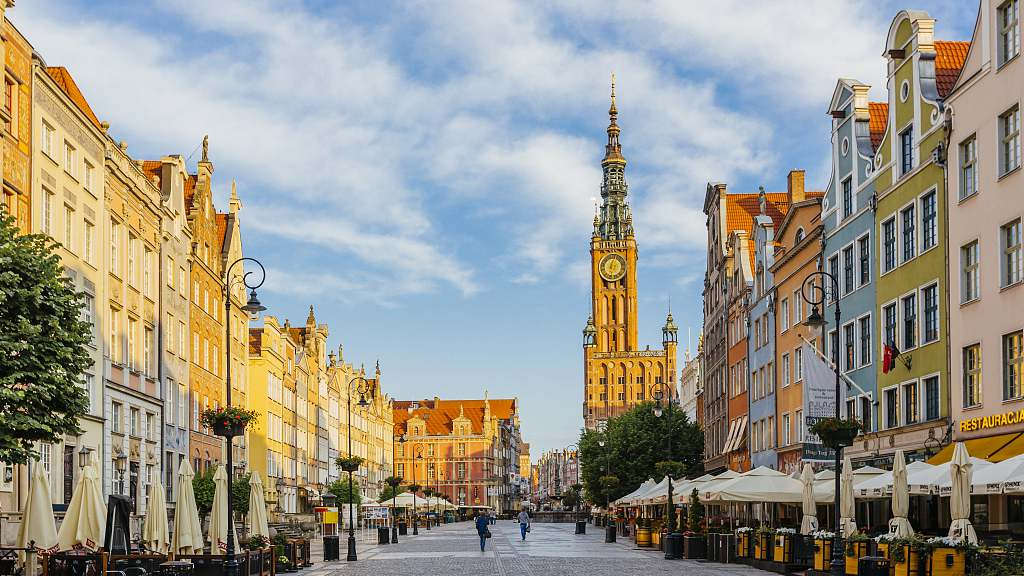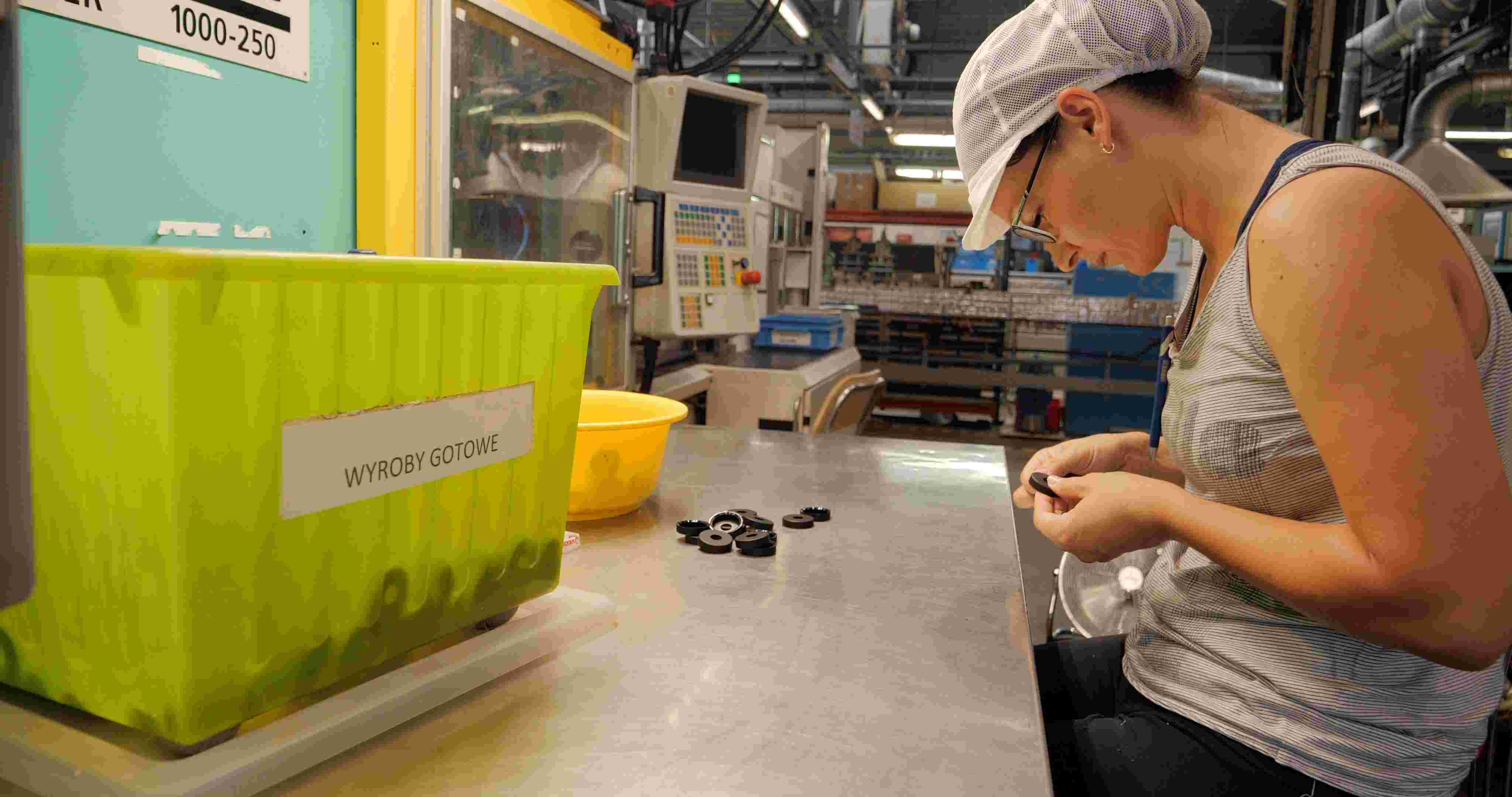

Since Poland became an EU member in 2004, up to two million of its citizens have migrated westwards in search of better jobs. More than half of them have ended up in the UK. Now, with Brexit looming and a slowdown in Western economies, many are already heading back home, and Poland is more than happy to have them back.
Besides Brexit, the main reason for the return is an increasingly favorable economic climate in Poland. For ordinary people this means more jobs, higher salaries, and more affordable housing mortgages.
The government has also taken measures to stimulate the return, with the government abolishing income taxes on all people legally working in Poland under the age of 26. The government is aiming not just to turn the tide, but to lure young skilled labor from all over the EU to come, work and stay.

A Topsil factory in Poland. /CGTN Photo
Poland is also trying to keep its skilled and highly educated workforce from going abroad for work. Jan Wysocki is one of those whose country would like to keep. He works as an engineer in the small factory that produces silicone seals. The factory is on the outskirts of Warsaw and requires a skilled workforce, which is the issue that many small companies across Poland are struggling with. Unlike many of his friends, Jan decided to stay.
"Some of them want to come back, some of them want to stay, but I think that many of my friends and people who I know actually, they are considering getting back or they are already back.”
Step in the right direction?
The government’s latest move to abolish the income taxes to those under the age of 26 is an additional incentive. Poland's economy has been rapidly expanding and local companies need more qualified workforce. They are therefore ready to look for it all over Europe.
“I would say that with aging population in Poland we’re going to look more forward to make it possible for those people to come here, in order to sustain the growth rate, that is going to be higher than in the other EU countries,” said Piotr Arak, director of the Polish Economic Institute.

Piotr Arak, director of the Polish Economic Institute. /CGTN Photo
To date, some two million Ukrainians are working in Poland, filling the void. The new law says, they too are free from paying income taxes, if they are younger than 26 and if they are legally here. The government is trying to keep them too in Poland, like any other younger people that would like to start a family here. With their Polish friends they share the same dream about the life expectations.
As Jan said, "They need to live, they need to have a house or flat, they need to have a car, (and) to have money for raising the child. So, (the) more they have, (the) less they will go abroad.”
Some critics are saying that by this, the government wants to win more votes at the incoming parliamentary elections. Yet, it is hard to find opposing voices, particularly among those under age 26.

Copyright © 2018 CGTN. Beijing ICP prepared NO.16065310-3
Copyright © 2018 CGTN. Beijing ICP prepared NO.16065310-3